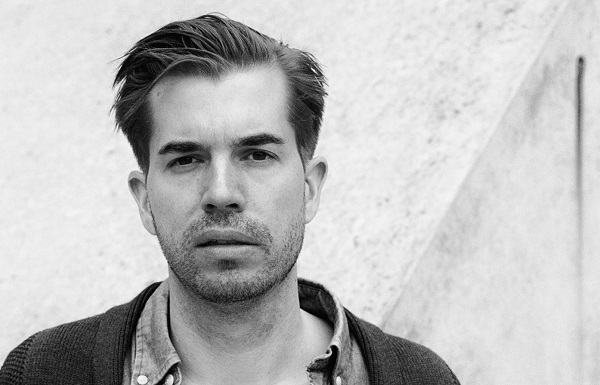 Markus Miessen, Uni.lu;
Credit: copyright Christian Werner
Markus Miessen, Uni.lu;
Credit: copyright Christian Werner
The University of Luxembourg has confirmed that renowned architect and urban planning researcher, Prof. Markus Miessen, has been appointed as chairholder for the new endowed Chair in Urban Regeneration between the University of Luxembourg and the city of Esch-sur-Alzette; the Chair is dedicated to urban planning and urban regeneration of Esch-sur-Alzette.
The Chair in Urban Regeneration is new in its orientation, as the University and the municipality agreed to a reorientation of the former Chair in Social Business and Social Management, which was launched in 2013. Both parties sealed the Chair’s new orientation and the recruitment of Prof. Miessen by signing an addendum to the initial agreement.
The Chair aims to set up research and teaching activities in these domains, by prioritising questions of regional and cross-border interest on public space, mobility or socio-economic dynamics of the habitat.
Urban regeneration and the Minett
Miessen proposes an understanding of urban regeneration that revolves around diverse formats of “participation” as a practice without mandate that initiates varied practices of pro-active involvement. For Miessen, urban regeneration is deeply rooted in the social sphere. No architect, planner or city authority can ever generate an urban equilibrium through purely physical change. Especially in geographies of structural change, spatial regeneration should be a process of carefully considered attempts to collaboratively rethink the social, economic, and cultural variables of an area.
“Regeneration is about how we are encouraged to interact with one another. Therefore, sustainable regeneration necessitates communication on equal terms, including diverse stakeholders,” explained Markus Miessen. “In order to rewire the planning system towards resilient and inclusive infrastructures, planners should serve the public, considering their local and regional constituencies. In times of digital transformation and COVID-19, this seems to hold true more than ever. An important question today is: How will the role of the planner have to change in order to address contemporary challenges concerning civil society and urban management?”
The southern region Minett, with its rich history, is the perfect candidate to host research and outreach activities on urban regeneration. The Minett is in the midst of post-industrial reconversion, with projects such as “Lentilles rouges” (“Rout Lëns”), the Esch-Schifflange area, and the development of Belval. These projects require long-term scenarios and a strategy to ensure proper implementation in their local and Greater Region context. This is where the University’s Department of Geography and Regional Planning and the Master of Architecture come in, whose experts will provide analytical and prospective expertise.
Comprehensive expertise for the Chair
With the University’s qualified resources in geography, urban planning and architecture, Prof. Miessen completes the circle by bringing in expertise in inclusive urban planning.
His central competence lies in the ability to curate, moderate, and collaborate. Beyond models of participation as a form of inclusive practice, he promotes the role of the “uninvested outsider”. Here, participation is understood as the expression of precise entry points into existing local and regional discourses from the point of view of critical planning, assuming responsibility beyond hierarchical practices of design.
The Chair will support research projects that interrogate models of purely economic growth towards a more inclusive culture of civil society, quality of life, and sustainable futures. Miessen’s research suggests that a “from scratch” situation, in planning terms, is a myth, and it’s the responsibility of researchers and urban planners to decolonise this myth. There is always a narrative in place, which needs to be recognised for urban planners to work around it.
“Since the University of Luxembourg settled on the Belval Campus, it acts as an agent of positive social, cultural and economic change in the region. The Chair’s new orientation is a perfect example of the collaboration between the University and the city of Esch-sur-Alzette”, stateed Prof. Stéphane Pallage, Rector of the University. “We are particularly keen on making our campus a real and lively neighbourhood. We welcome Prof. Miessen and are looking forward to the dynamics he will inject into the reasoning and activity in this domain.”
Mayor of Esch-sur-Alzette George Mischo added: “With this Chair and the collaboration with the University of Luxembourg, we expect our City to gain new insights in terms of urban regeneration and urban planning, especially in view of our largest urbanisation projects, ‘Rout Lëns’ and ‘Esch-Schifflange’. Also, we welcome the new chairholder’s inclusive approach of collaborating with the many actors, as we shared this approach in numerous of the City’s past projects, beneficial especially to our residents.”
About Markus Miessen
Markus Miessen’s work revolves around questions of critical spatial practice, institution building, and spatial politics. Before joining the University of Luxembourg, he taught at the Architectural Association in London, at the Städelschule in Frankfurt, at the University of Southern California in Los Angeles, and at the Academy of Design/ University of Gothenburg. He has also been a Harvard Fellow and authored “The Nightmare of Participation” and “Crossbenching: Towards Participation as Critical Spatial Practice”. He earned his PhD from the Centre for Research Architecture at Goldsmiths, London in 2017.









